 Legacy of Florence Nightingale
Legacy of Florence Nightingale
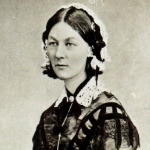
Invaluable is the legacy of Florence Nightingale in founding the nursing profession and advancing nursing reform. No wonder her birthday - May 12 - has become an international holiday for nurses.
Florence was born in 1820 in the family of a wealthy English aristocratic landowner. At the age of 16, Florence Nightingale had the feeling that she should serve the people. In her diary, she writes that "God called her into service." Therefore, despite the excellent education and the protests of the family, Florence Nightingale decides to become a sister of mercy.
In those days, nurses were mostly women of the lowest moral character. However, Florence Nightingale traveled to Germany in 1851 to study the methods of nursing. After excellent exam results, Florence returns to England. And in 1853 the ode went to France - again for training. This time there was practice in monastic hospitals.
Upon her return to her homeland, Florence receives an unpaid "position" as a matron of a small hospital. It was an institution for "sick noble women". Florence Nightingale showed in her work the talent of a true administrator. Moreover, she invested in it part of her deeply religious soul. The medical institution became exemplary, it could get into it not only by “noble birth”. People of all classes and creeds were accepted.
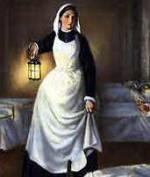
The Crimean War of 1853-1856 turned the course of Florence's life upside down. In 1854, she went to Turkey, and after a while - to the Crimea, leading a group of sisters of mercy of 38 people.
The most terrible unsanitary conditions reigned in hospitals - rats, insects, lack of elementary hygiene measures. And women - sisters of mercy, doctors and military command met very unfriendly.
Through her natural perseverance, talent as an organizer, and sincere faith, Florence Nightingale brought about a revolution in the organization of nursing. There were new kitchens, laundries, the sick were kept clean and constantly monitored. Florence herself made a "detour" of the wounded at night, holding a lamp in her hand. Hence her legendary "name" - the lady with the lamp.

It was not easy for the famous nurse to prove her case and carry out reforms in the hospital. But the legacy of Florence Nightingale is, among other works, in the introduction of statistical research methods in medicine. It was the diagrams she compiled that clearly showed why the wounded die in hospitals. And how can you improve the situation by changing the methods of care.
Through the implementation of changes in nursing care, Florence Nightingale was able to reduce the death rate of the wounded from 42.7% to 2.2%. Florence showed that most of the wounded died from infectious diseases and complications caused by poor care. Schools for the training of nurses were organized, the "corridor" system was converted into a "ward" system.
The big breakthrough was the proof that the wounded after operations need not only physical, but also moral support. This means that a sister of mercy should also help in correspondence, reading books, organizing free time.
The main legacy of Florence Nightingale is the organization of training for middle and junior medical personnel, as well as the reorganization of the teaching staff. Florence believed that qualified nurses should train nurses.
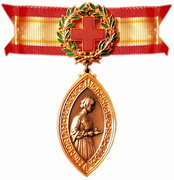
For her contribution to the development of medicine and nursing, Florence Nightingale was awarded the Royal Red Cross in 1883 and the British Order of Merit in 1907. Florence Nightingale died on August 13, 1910. In 1912, the medal named after the great sister of mercy "For true mercy and care for people, admirable by all mankind" was established - one of the most honorable awards.
Florence Nightingale's legacy - her books:
- "Notes on Hospitals"
- "Notes on Factors Affecting the Health, Efficiency and Management of British Army Hospitals"
- "How to take care of the sick"
- "Notes on Nursing for the Working Classes"
- "Introductory Notes on Institutional Stay"
- "Observations"
- "Report of the Indian Sanitary Commission"




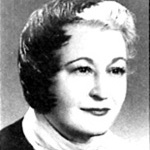
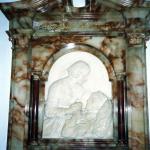
I am also in awe of this woman! There is her museum in London, we are just going to go with the whole family in May. My son is very passionate about medicine even though he is 8.5 years old. At his request, we go. So I can offer my report to your blog, with photos and comments))) I think it will be interesting!
Wow, what an enthusiastic boy - well done! It would be so interesting to visit the Florence Nightingale Museum. Thank you for such a tempting offer to report, I'm very glad. I would be happy to post it here, I think we will agree on the conditions. )))
It is written "Florence was born in 1920", "Florence Nightingale died on August 13, 1910.", something is a little confused with the dates. I'm sorry, but it just kind of caught my eye.
Thank you for your care and indifference, Olga! Mistake, of course. Corrected. Born in 1820.
I have slightly different information! It was not Florence who showed that the wounded mostly died from infectious diseases, but Nikolai Pirogov! Just in the Crimean War, Nikolai Ivanovich, being a patriot and wholeheartedly compassionate to the soldiers, went to Sevastopol, headed a large hospital. And it was through his work that the cause of high mortality among the wounded and simply sick was identified and corrected.
Galina, no one is going to argue with you. There will still be an article about Nikolai Ivanovich Pirogov on this site. Each person has his own contribution to history.